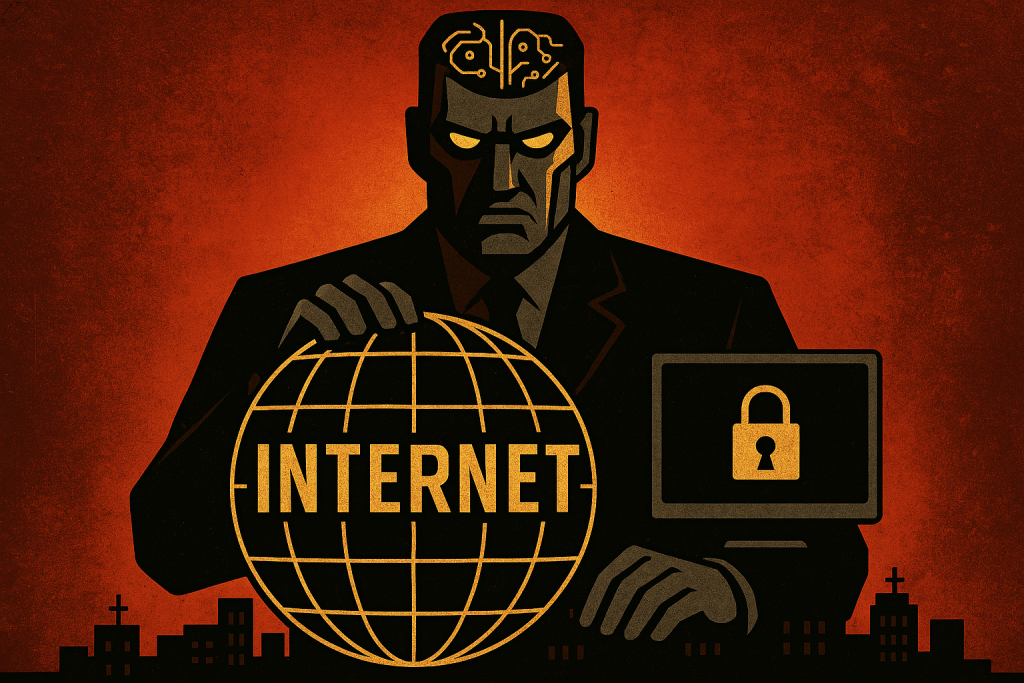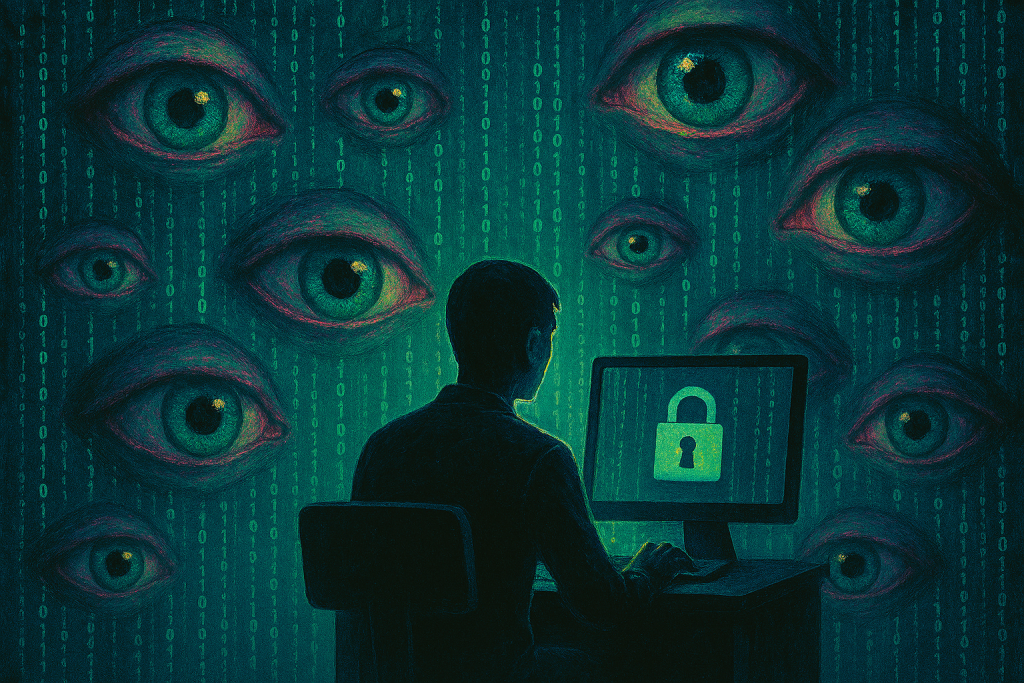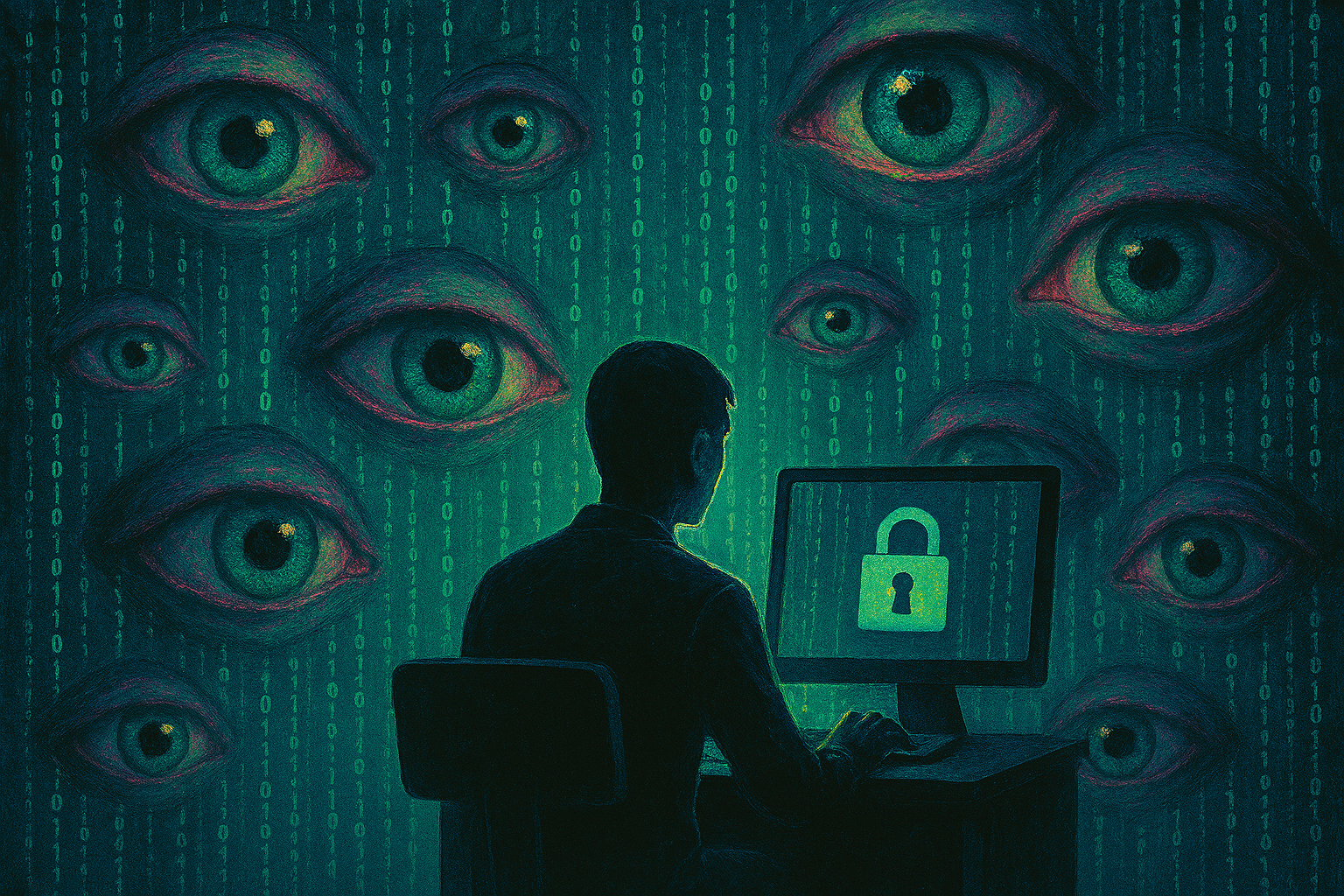In early 2025, U.S. lawmakers introduced the SCREEN Act —short for Shielding Children’s Retinas from Egregious Exposure on the Net. On paper, it’s a child protection bill. In practice? It’s a digital Trojan horse that could usher in mandatory ID verification, centralized tracking, and speech policing across the internet.
Let’s unpack what this bill says, what it doesn’t say, and why it’s raising alarms among privacy advocates, technologists, and civil liberties watchdogs.

🎯 What the SCREEN Act Claims to Do
The SCREEN Act (S.737 / H.R.1623) was introduced by Senator Mike Lee and Representative Mary Miller in February 2025. Its stated goal is simple: protect minors from online pornography and harmful content.
But the mechanisms it proposes are anything but simple.
Key Provisions:
- Platforms must verify users are not minors before granting access to adult content.
- Third-party age verification is permitted, but platforms remain liable for failures.
- Platforms must minimize data retention, but no clear penalties exist for violations.
The bill empowers the Federal Trade Commission (FTC) to audit platforms and issue fines for non-compliance. You can read the full bill text on Congress.gov and track its progress via GovTrack.
🕵️♂️ Surveillance by Design?
While the SCREEN Act doesn’t explicitly mandate uploading government IDs, its vague language opens the door to platforms adopting ID-based verification to avoid liability. That’s where the real concern begins.
What Could Go Wrong:
- Behavioral Profiling: Once users are verified, platforms can tie activity to real identities—creating detailed behavioral maps.
- Traffic Monitoring: Every click, comment, and search could be logged and linked to your verified ID.
- Legal Exposure: Users could face fines or criminal charges for speech deemed “harmful,” “misleading,” or “hateful.”
- Social Credit Systems: Critics warn this could evolve into a China-style model, where online behavior affects access to services, jobs, or travel.
This isn’t just speculation. China recently summoned Nvidia over alleged “backdoor safety risks” in its H20 chips, highlighting the global tension around surveillance infrastructure.

🗣️ Free Speech & Misinformation: A Slippery Slope
The SCREEN Act doesn’t directly regulate speech—but it exists in a legislative ecosystem that increasingly does.
In January 2025, the White House issued an executive order to “end federal censorship,” acknowledging past abuses in the fight against “misinformation.” But the damage may already be done.
Ethical Red Flags:
- Hate Speech Detection Tools are often built on psychiatric profiling. A recent study found that online hate speech correlates with traits linked to personality disorders—raising questions about how speech is judged and who gets to judge it.
- Content Moderation Algorithms are notoriously biased, often silencing marginalized voices while amplifying corporate or state-approved narratives.
🌍 Global Echoes: The SCREEN Act Isn’t Alone
The SCREEN Act is part of a global wave of legislation that uses child safety as a pretext for deeper control.
International Parallels:
- The EU’s Digital Services Act mandates platform accountability and content moderation.
- The UK’s Online Safety Bill requires age verification and gives regulators power to fine platforms.
- Australia and Canada are exploring similar laws, often with little transparency about enforcement or data use.
These laws often lack clear definitions of “harmful content,” leaving enforcement open to interpretation—and abuse.

🧠 Final Nuts: What’s Really at Stake?
Let’s be blunt. The SCREEN Act is not just about protecting kids. It’s about redefining the architecture of the internet.
The Real Concerns:
- Anonymity is dying: Once ID verification becomes standard, anonymous browsing and speech will be relics of the past.
- Surveillance is normalized: Governments and corporations will have unprecedented access to your digital footprint.
- Speech becomes a liability: Say the wrong thing, and you could lose access to platforms—or face legal consequences.
- Digital citizenship replaces civil liberty: Your online behavior could determine your real-world rights.
This is the infrastructure of a social credit system, dressed up as child protection. And unless we push back, it could become the default.
Any Questions? Leave a comment or Contact Us



Leave a Reply